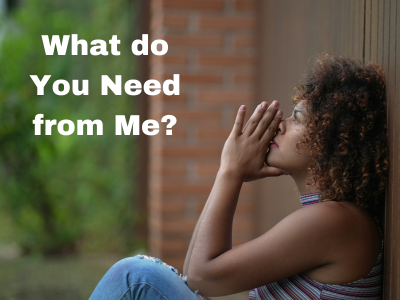It’s a powerful question – “What do you need from me?” It relieves us from the anxiety of guessing another person’s expectations of us, be it our partner, parents, children or peers. Add to this the freedom to say “No” to what is requested when it doesn’t align with your needs. Isn’t that powerful stuff?
How many of us live in an environment that allows us to practise this?
How many of us can say No without fear?
How many of us can request with happy acceptance of a No?
This is far from easy as a practice. We expect others to understand our needs without our asking. Most of our requests are veiled demands. When others don’t understand our needs, we label them as uncaring and inconsiderate. The truth is that we don’t know what we need ourselves because our self-awareness is low. When we know our needs, we are afraid to ask for fear of refusal. When we ask and get a No, we are resentful.
When I started learning Nonviolent Communication, I was shocked at the violence in my behaviour. What I imbibed from my family, society, school, workplace, and culture was suddenly under the microscope and it wasn’t a pleasant view. I realised how I had disregarded my needs for years for the sake of relationships even as the same relationships left me wanting for more.
“The concept of needs is the cornerstone of Nonviolent Communication. Needs are the conditions human beings require to thrive. These include physical needs, such as water and air, as well as intangible ones, like respect, empathic understanding, freedom, meaning, and dignity. Because we consider them universal, expressing our own needs and acknowledging the needs of others enables us to create common ground by connecting at a deep place of the human experience. We believe that all our actions — anything anyone ever does — are attempts to meet needs. With this realization in mind, we can understand others’ actions, however baffling, and transform judgment into empathic understanding. In a safe environment, free of judgment and blame, it is easier to find solutions that can meet everyone’s needs.” – Center for Nonviolent Communication
Read this again. And think about it. Wouldn’t you want to live in a way that everyone’s needs are met in the most life-serving way possible?
Learning and practising nonviolent communication is part of the personal coaching process for many clients. And it is transformative.

